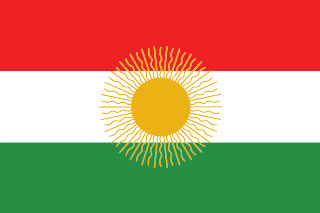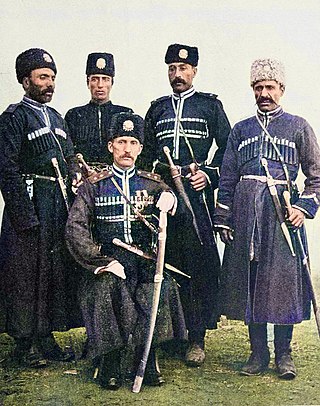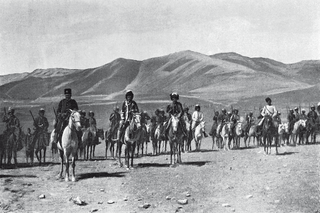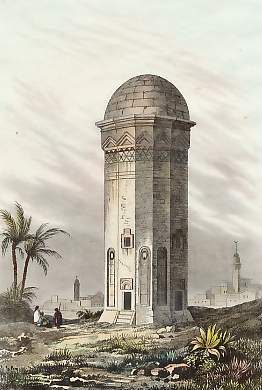Related Research Articles

Kurds or Kurdish people are an Iranic ethnic group native to the mountainous region of Kurdistan in Western Asia, which spans southeastern Turkey, northwestern Iran, northern Iraq, and northern Syria. There are exclaves of Kurds in Central Anatolia, Khorasan, and the Caucasus, as well as significant Kurdish diaspora communities in the cities of western Turkey and Western Europe. The Kurdish population is estimated to be between 30 and 45 million.

Mehmet Ziya Gökalp was a Turkish sociologist, writer, poet, and politician. After the 1908 Young Turk Revolution that reinstated constitutionalism in the Ottoman Empire, he adopted the pen name Gökalp, which he retained for the rest of his life. As a sociologist, Ziya Gökalp was influential in the negation of Islamism, pan-Islamism, and Ottomanism as ideological, cultural, and sociological identifiers. In a 1936 publication, sociologist Niyazi Berkes described Gökalp as "the real founder of Turkish sociology, since he was not a mere translator or interpreter of foreign sociology".

The Kurds are an Iranian ethnic group in the Middle East. They have historically inhabited the mountainous areas to the south of Lake Van and Lake Urmia, a geographical area collectively referred to as Kurdistan. Most Kurds speak Northern Kurdish Kurmanji Kurdish (Kurmanji) and Central Kurdish (Sorani).

The Oghuz Turks were a western Turkic people who spoke the Oghuz branch of the Turkic language family. In the 8th century, they formed a tribal confederation conventionally named the Oghuz Yabgu State in Central Asia. Today, much of the populations of Turkey, Azerbaijan and Turkmenistan are descendants of Oghuz Turks. Byzantine sources call them Uzes. The term Oghuz was gradually supplanted by the terms Turkmen and Turcoman by 13th century.

Xoybûn or Khoyboun was a Kurdish nationalist political party, that is known for leading the Ararat rebellion, commanded by Ihsan Nuri. Many Armenians joined the movement as well, the party was active in all parts of Kurdistan until it was dissolved in 1946.

The Kayı or Kayi tribe were an Oghuz Turkic people and a sub-branch of the Bozok tribal federation. In his Dīwān Lughāt al-Turk, the 11th century Kara-Khanid scholar Mahmud al-Kashgari cited Kayı as of one of 22 Oghuz tribes, saying that Oghuz were also called Turkomans. The name Kayı means "the one who has might and power by relationship" and the Turkmen proverb says that "people shall be led by Kayi and Bayat tribes".

The Kurdish population of Syria is the country's largest ethnic minority, usually estimated at around 10% of the Syrian population and 5% of the Kurdish population.

The Kurds are the largest ethnic minority in Turkey. According to various estimates, they compose between 15% and 20% of the population of Turkey. There are Kurds living in various provinces of Turkey, but they are primarily concentrated in the east and southeast of the country within the region viewed by Kurds as Turkish Kurdistan.
The Azerbaijani people are a Turkic ethnic group of mixed ethnic origins, primarily the indigenous peoples of eastern Transcaucasia, the Medians, an ancient Iranian people, and the Oghuz Turkic tribes that began migrating to Azerbaijan in the 11th century CE. Modern Azerbaijanis are the second most numerous ethnic group among the Turkic peoples after Anatolian Turks and speak North Azerbaijani and/or South Azerbaijani. Both languages also have dialects, with 21 North Azerbaijani dialects and 11 South Azerbaijani dialects.

The Karapapakhs or Terekeme are a Turkic people, who originally spoke the Karapapakh language, a western Oghuz language closely related to Azerbaijani and Turkish. Nowadays, the Karapapakh language has been largely supplanted by Azerbaijani and Turkish.

Rohat Alakom is a Kurdish author from Kars, Turkey who writes his books in Kurdish, Turkish and Swedish. He was born in a village of Kağızman a district of Kars Province. He went to high school in Kağızman, Later, he went to the capital of Turkey Ankara for higher education. After living in Bulgaria (1979–1980) and Germany (1980–1982) he went to Sweden. He is currently living in Sweden.
The National Party is a nationalist party in Turkey. The party was founded by Gökçe Fırat Çulhaoğlu in 2010.

Chechen Kurds or Kurdified Chechens are ethnic Chechens who went through a process of Kurdification after fleeing to Kurdistan during and after the Russian conquest of the Caucasus in the 1860s. Today, these Chechens are perceived as being of the "Chechen tribe" and "Lezgî tribe".
Kurdology or Kurdish studies is an academic discipline centered on the study of Kurds and consists of several disciplines such as culture, history and linguistics. Kurdish studies traces its institutional history to 1916, when in St. Petersburg in the late Russian Empire, during World War I, Kurdish was first taught as a university course by Joseph Orbeli.

Turkoman, also known as Turcoman, was a term for the people of Oghuz Turkic origin, widely used during the Middle Ages. Oghuz Turks were a western Turkic people that, in the 8th century A.D, formed a tribal confederation in an area between the Aral and Caspian seas in Central Asia, and spoke the Oghuz branch of the Turkic language family.
The denial of Kurds was the official state policy of Turkey for several decades, which denied that Kurds constitute its own ethnic group and instead alleged that they are a subgroup of Turks, and the words 'Kurd' and 'Kurdistan' were omitted by state institutions. During the 20th century, Kurds were referred to as Mountain Turks, with the state prohibiting the use of the terms "Kurd" or "Kurdish". As of the 2020s, Turkey does not recognize Kurds as an ethnic group nor Kurdish as a language.
Koçgiri is a collection or confederation of Kurdish Alevi tribes, of mainly from Sivas Province, in Turkey. They are mostly speakers of a dialect of Kurmanji, some of them also speak Zaza.
Mehmet Şerif Fırat was a Kurdish author and is known for his 1945 book History of Varto and the Eastern Provinces in which he denied the existence of Kurds and claimed they are of Turkish origin. The book was republished in 1961 and counted with a foreword from the Turkish president Cemal Gürsel.
Argu or Arghu languages is a branch of Common Turkic languages along with Oghuz, Kipchak, Karluk and Siberian Turkic. Unlike other branches, this group is not multilingual. The historical Argu language and its descendant Khalaj are the only languages of this group.
References
- ↑ Mahmut Rışvanoğlu, Doğu Aşiretleri ve Emperyalizm, vol. 2, İstanbul: Türk Kültür Yayını, 1975 Mehmet Eröz, Doğu Anadolu'nun Türklüğü, Istanbul: Türk Kültür Yayını, 1975
- ↑ A. Jaba, Recueil de notices et de récits kourdes (St-Pétersbourg, 1860), ISBN13: 978-0274306411, Wentworth Press (July 30, 2018)
- ↑ A. Jaba, Dictionnaire kurde-français, ISBN13: 978-0342373055, St-Pétersbourg, 1879, Franklin Classics (October 11, 2018)
- ↑ F. Justi, Kurdische Grammatik, ISBN13: 978-9333644020, St. Petersburg 1880, Facsimile Publisher, 2016
- ↑ Soane, E. B.; Vladimir, Minorsky (1923). "The Tale of Suto and Tato: Kurdish Text with Translation and Notes". Bulletin of the School of Oriental Studies. Cambridge University Press. 3: 69–106. doi: 10.1017/S0041977X00000069, S2CID 162669858 B.P. Nikitine, ‘Les Kurdes racontés par eux-mêmes’, L'Asie française no. 231 (Mai 1925), 148–157 B.P. Nikitine, ‘Kurdish stories from my collection’, Bulletin of the School of Oriental Studies 4 (1926), 121–138 Les Kurdes, étude sociologique et historique, Paris: Klincksieck, 1956
- ↑ V. Minorsky, ‘Kurdistan’ and ‘Kurds’, Encyclopaedia of Islam,
- ↑ M. Sykes, ‘The Kurdish tribes of the Ottoman Empire’, Journal of the Royal Anthropological Institute 38 (1908), 451–486
- ↑ E.B. Soane, To Mesopotamia and Kurdistan in Disguise, ISBN13: 978-1602069770
- ↑ C.J. Edmonds, Kurds, Turks and Arabs. London, Oxford University Press, First Edition, 1957
- ↑ Rışvanoğlu, Doğu ve Emperyalizm, pp 69–70, 186–8.
- ↑ Eröz, Doğu Anadolu’nun Türklüğü, p. 13
- ↑ Eröz, Doğu Anadolu’nun Türklüğü, p. 13
- ↑ “İddianame” (Indictment), in Devrimci Doğu Kültür Ocakları Dava Dosyası, Kalite Matbaası, 1975, pp. 15–25
- ↑ Martínez-Cruz, Begoña; Vitalis, Renaud; Ségurel, Laure; Austerlitz, Frédéric; Georges, Myriam; Théry, Sylvain; Quintana-Murci, Lluis; Hegay, Tatyana; Aldashev, Almaz; Nasyrova, Firuza; Heyer, Evelyne (2011). "In the heartland of Eurasia: the multilocus genetic landscape of Central Asian populations". European Journal of Human Genetics. 19 (2): 216–223. doi:10.1038/ejhg.2010.153. ISSN 1476-5438. PMC 3025785. PMID 20823912.
Our study confirms the results of Li et al's study that cluster the Hazara population with Central Asian populations, rather than Mongolian populations, which is consistent with ethnological studies. Our results further extend these findings, as we show that the Hazaras are closer to Turkic-speaking populations from Central Asia than to East-Asian or Indo-Iranian populations.
- ↑ Rohat Alakom, Ziya Gökalp'in Büyük Çilesi Kürtler, pp. 74–75, Avesta Yayinlari (January 1, 2018), ISBN13: 978-6052246214
- ↑ Dr. Chukru Mehmed Sekban, La question Kurde: des problèmes des minorités. Paris, Presses universitaires de France, 1933
- ↑ Şükrü Mehmed, "Kürdler Türklerden Ne İstiyorlar?", pp. 26–39, ISBN13: 978-6057420138
- ↑ Doğu Anadolu Gerçeği, Türk Kültürünü Araştırma Enstitüsü y., 1986, pp. 52.
- ↑ Mitchell 2010.
- ↑ "Doğan Tufan | Seyyid Ahmet Arvasi ve Doğu Anadolu Gerçeği". Yozgat Medya | Yozgat Haberleri - Son Dakika Haberleri (in Turkish). Retrieved 2024-02-01.
- ↑ M. Şerif Fırat, Doğu İlleri ve Varto Tarihi, Kardeş Matbaası, 1970
- ↑ M. Fahrettin Kırzıoğlu, “Kür-Aras/Aran Kürtleri“, VI. Türk Tarih Kongresi (1961), Ankara: Türk Tarih Kurumu, 1966, pp. 363–413
- ↑ M. Fahrettin Kırzıoğlu, "Her Bakımdan Türk Olan Kürtler", Ankara: Çalışkan Basımevi, 1964 M. Fahrettin Kırzıoğlu, "Kürtler'in Türklüğü", Ankara: Atatürk Üniversitesi, Ziraat Fakültesi Talebe Derneği, 1968. See also the biographical notice on Kırzıoğlu in Atatürk Ünversitesi Türkiyat Araştırmaları Enstitüsü Dergisi, Sayı 28 (Erzurum, 2005), pp. 1–7
- ↑ Kırzıoğlu M. Fahrettin, "Kürtlerin Kökü - 1. Bölüm (Şerefname ile Dede Korkut Oğuznamelerine Göre: Kürtlerin Kökü, Oğuzların Bogduz ile Becen Boylarındandır)", 1963, Ankara, Diyarbakırı Tanıtma Derneği Yay.
- ↑ Aydınlık (2016-02-28). "Türkler ve Kürtler aynı soydan". Aydınlık (in Turkish). Retrieved 2024-01-31.
- ↑ Ziya Gökalp, "Kürt Aşiretleri", pp. 42-50